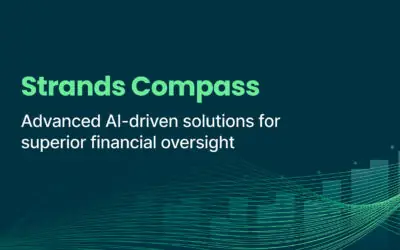Financial inclusion in Latin America is not only about helping individuals but also about driving societal and economic progress too. This challenge needs to be addressed by private sector businesses, governments, and non-profit organizations. But especially banks and financial institutions hold the key to lead the financial accessibility growth.
In this article, we discuss the current situation of financial inclusion in Latin America. To do so, we’ll explore the impact of technology on fighting the main barriers that its population face, and how digital innovation and fintech players are positively impacting the perception of consumers and accelerating financial services accessibility.
Keep reading and join us in a financial transformation for a more inclusive future in Latin America.
Latin America’s Financial Inclusion in Figures
→ 79% of individuals in Latin America have access only to basic financial products and services.
→ 58% of Latin Americans own a Credit card, while access to loans, insurance, or investment products is limited to just 3 out of 10 individuals.
→ Accounts are held by 59% of individuals with low income and 40% of people residing in small city areas.
Main Barriers to Financial Inclusion in Latin America
The lack of opportunities for financial education and responsible credit use is depriving consumers from the necessary tools to manage credit effectively. Which means a reduction in their chances of having long-term financial well-being.
Low access to credit
As per Mastercard’s findings, 77% of the surveyed individuals have never sought a financial product, while 42% have been rejected, especially in the context of credit card applications.
Improving consumers’ access to credits is an essential aspect of advancing financial inclusion, as it directly contributes to reducing financial vulnerability, especially during times of crisis.
By enabling individuals to access credit responsibly, banks can promote financial adaptability and offer a pathway to economic recovery.
Poor financial education
According to a Mastercard’s report, where they interviewed over 2,800 consumers, 84% of respondents highlighted financial education as essential for financial inclusion.
However, the report also highlights a concerning reality: the majority of Latin Americans have not received adequate training, guidance, or assistance in managing their finances.
The Gender Gap in Latin America’s Financial Inclusion
Despite the advancements in expanding access to financial services across the region, gender disparities remain an important concern. Women continue to face obstacles in owning bank accounts, credit and, needless to say, savings products.
The gender gap in financial inclusion reflects broader societal inequalities and creates women’s economic empowerment. It makes it difficult for them to access credit for entrepreneurship, education, and personal development, perpetuating cycles of poverty and limited opportunities.
To address inequality, governments, financial institutions, and non-profit organizations must collaborate to create targeted financial products and services for women’s needs. Implementing financial education programs and removing cultural and regulatory barriers can also play a pivotal role in promoting gender equality in financial inclusion.
Next Steps for Financial Inclusion in Latin America
Banks and fintechs must focus on three key areas to help more users and enhance financial inclusion: service personalization, digital accounts and credit cards accessibility and financial education.
If you identify an opportunity in the market for your institution, continue reading to uncover the essential keys to financial inclusion.
Service Personalization
Banks need to focus on those segments struggling with access to financial services. The integration of Open Finance and Personal Finance Management tools will deliver value and confidence to Latin America’s underserved consumers.
Furthermore, a majority of consumers believe that receiving financial education and guidance could significantly enhance their knowledge of their financial situation, leading to more informed and smart decisions.
Access to digital accounts and credit cards
A total of 91 million customers in Latin America don’t have digital accounts, according to Mastercard’s report. Meaning the 21% of the adult population rely exclusively on cash for their financial management, keeping them away from the financial system and all the benefits of digital banking.
To improve these figures, banks and fintechs must put loans and credit cards closer to Latin American consumers. One way to do it is to prioritize the development of financial products and services adapted to the needs of these users and their economic aspirations.
Financial education
Nowadays, there’s a lack of banks and financial institutions providing valuable financial education in Latin America. But where there’s a gap there’s an opportunity, and banks still can (and must) work effectively towards accessibility.
One of the forms of education that come to mind are the traditional courses and workshops, but there are many other ways to make finance understandable. From a UI that makes it easy for users to navigate through their finances, to gamified financial education.
How Strands Can Help you Lead Financial Inclusion in Latin America
Strands remains committed to providing digital banking access and quality education to individuals and organizations. With our solutions, you can promote financial inclusion through innovative and user-friendly Personal Finance Management tools.
Thanks to Strands Engager, you can create and target personalized insights and advice to enhance your customers’ financial education and well-being. For instance, by offering guidance to individuals with limited knowledge of money management, or providing personalized advice for women with entrepreneurial aspirations.
If you’re ready to take steps towards leading financial inclusion in Latin America, don’t hesitate to speak with one of our experts.
References:
Mastercard and Americas Market Intelligence. The State of Financial Inclusion post COVID-19 in Latin America and the Caribbean: New Opportunities for the Payments Ecosystem.

Download One Pager
PRIVACY NOTICE
This form collects your basic personal information so that we can continue to send you relevant information and updates about the world of Fintech.
By giving your consent, you'll stay on our distribution list and more importantly, in the loop about the latest Strands news.



